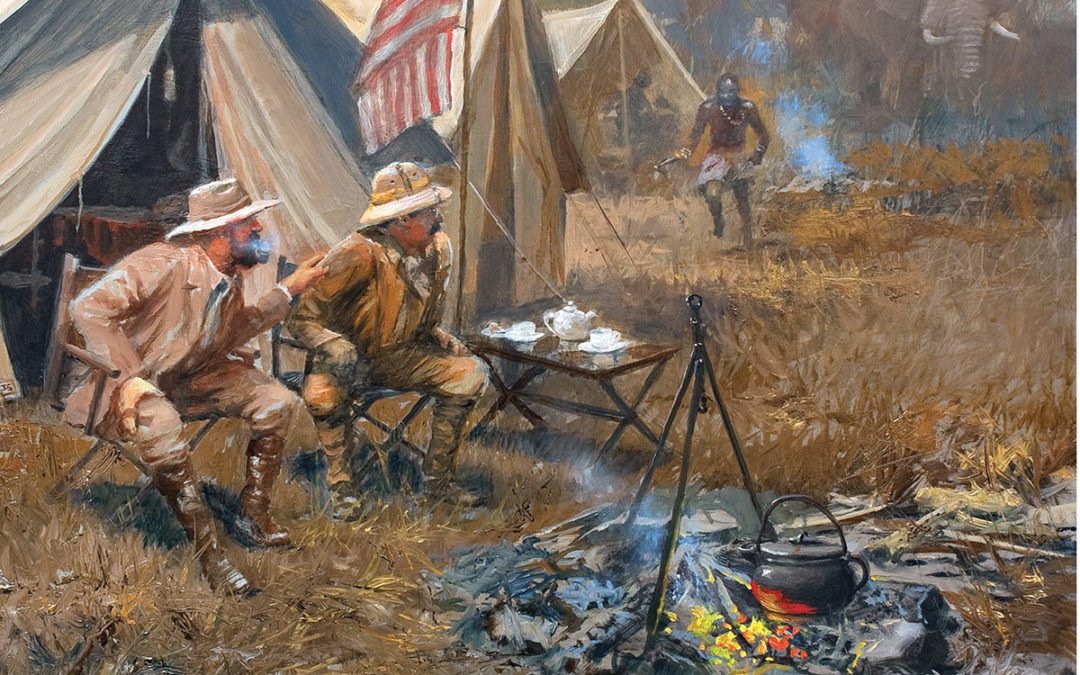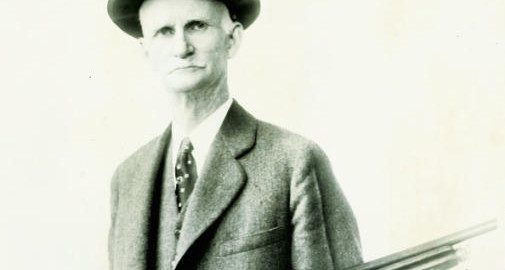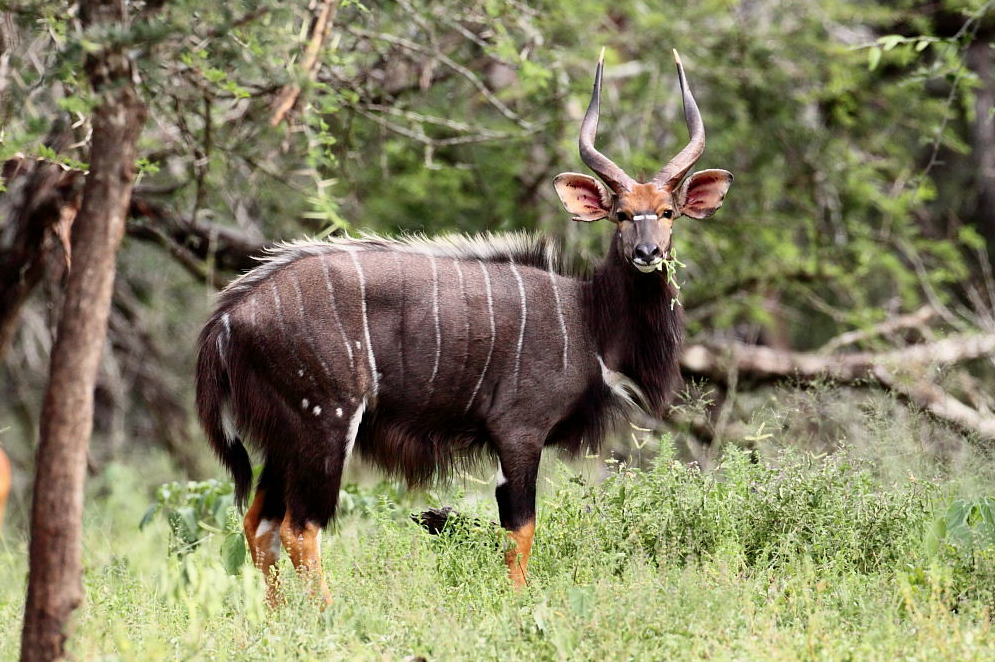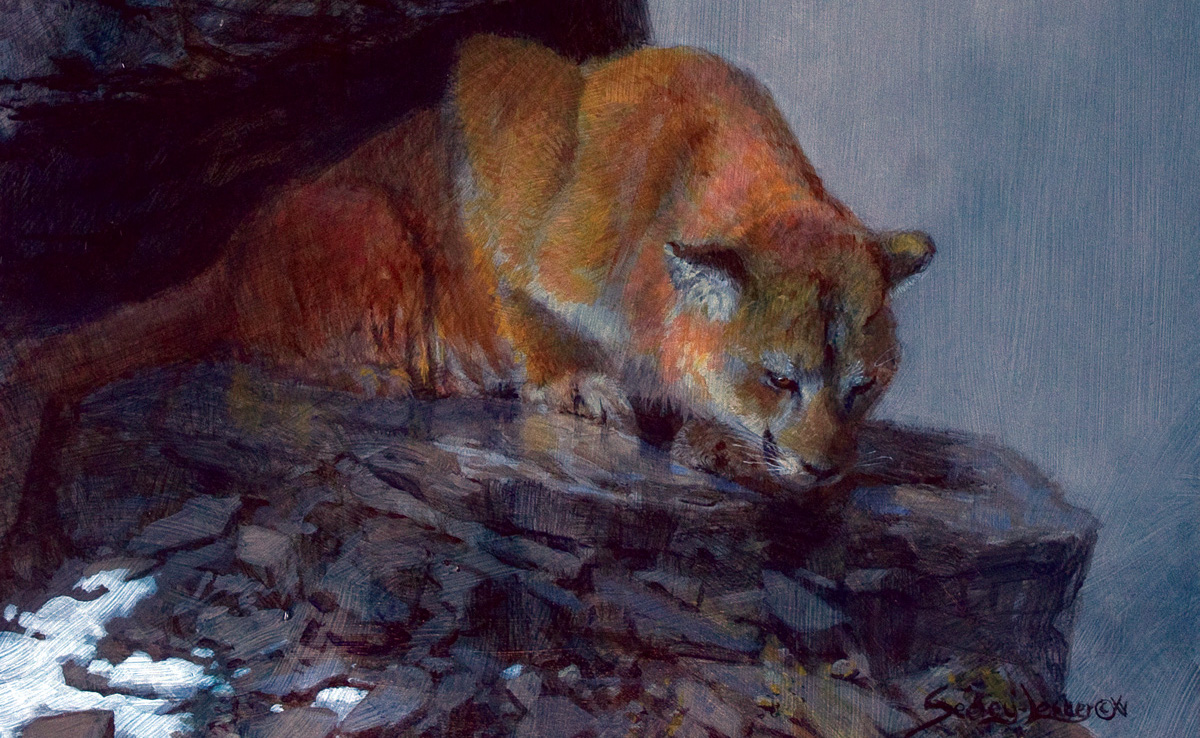TR had already shot his first bull elephant for the Museum of Natural History in New York. Now, he needed another male and a female to satisfy their requirements. Professional Hunter R. J. Cunninghame and TR had enjoyed much success while hunting with the ‘Ndorobo bushmen, but now they were to hunt with a different tribe.
There were no ‘Ndorobo in the new area, but Commissioner Horne assured them that the Wa-Meru, a wild tribe of hunters, possessed similar skills and would find the elephants they were looking for. Indeed, the very first morning the commissioner arrived at their camp with a couple of native scouts bearing some good news.
Apparently they had seen three elephants close by some shambas about three miles away. After hearing of the sighting, TR and Cunninghame, along with their gunbearers, wasted no time heading out to find their quarry. They were led by a group of Wa-Meru carrying spears along with several trackers.
The party also included Professional Hunter Leslie Tarlton and Roosevelt’s son, Kermit, who had his cameras with him to record the hunt. At first they followed the natives’ footpaths through the cultivated fields, eventually arriving at a tangled patch of jungle-like foliage on the outskirts of a dense forest where they hoped to find the three elephants. The jungle seemed impenetrable, but the native trackers wasted no time leading them through the dense vegetation.
The natives moved like gazelles ahead of TR and his men, who were having a hard time keeping up. The foliage was so thick that one hunter would be completely hidden from another though only a few feet apart. The wall of vegetation was more than 12 feet high in places, and it was only when they climbed a small incline that the elephants could be seen about a quarter-mile away, gently flapping their ears.
They realized the wind was not in their favor, so Cunningham suggested they take a wide birth around the outside of the huge tangle, then reenter closer to the herd. Because these elephants had a reputation for being very aggressive, stalking them in such dense cover would be extremely dangerous.
When they entered the thicket, they found many old elephant trails that had become tunnels through the tangle of vines. The trails were deep in places and crisscrossed each other. Periodically, the trackers would climb trees in the hopes of locating the elephants, but it took several attempts before one of the trackers found signs that the great beasts were not far off.
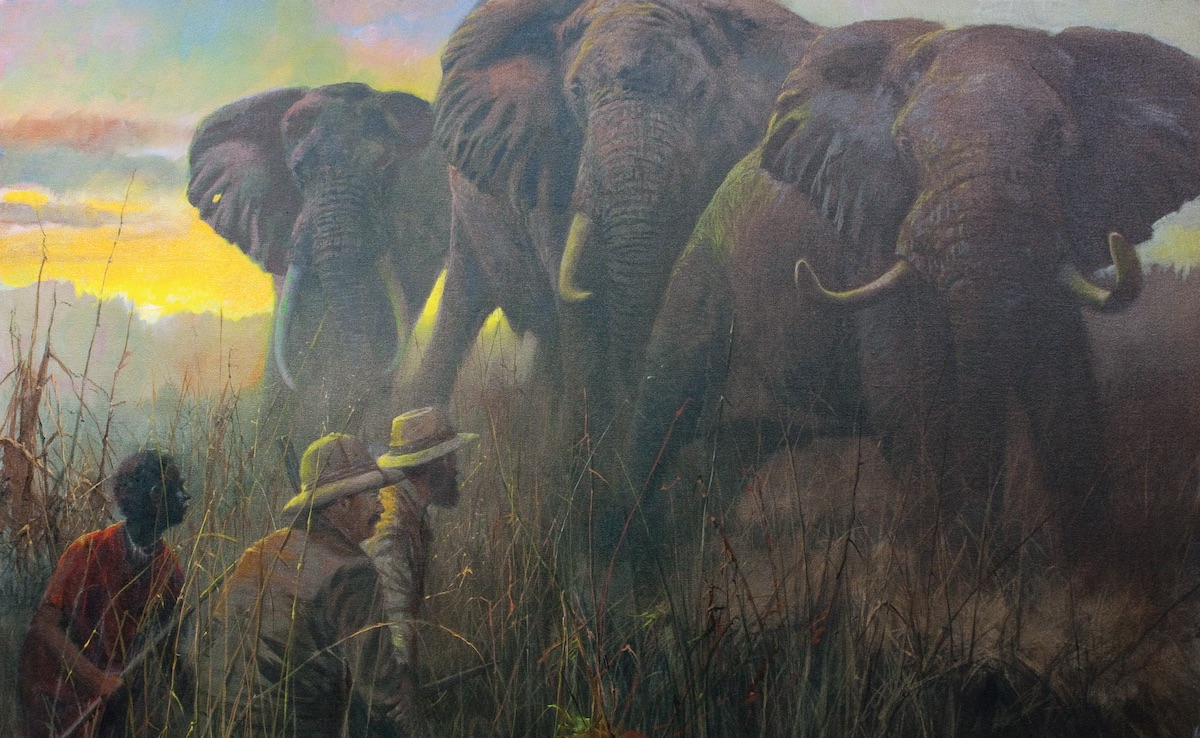
The Land Of Giants
The leader of the Wa-Meru wanted TR and his party to follow him toward some lower cover, but that would have given the elephants the hunters’ wind. Cunninghame was aware of this and decided it would be folly to take the route suggested by the Wa-Meru.
After much discussion and gesturing, Cunninghame took control of the stalk and signaled for TR to be ready with his double for a possible charge. Cunninghame motioned for Tarlton to join him and, after a brief conversation, he leaned forward and Tarlton climbed on his shoulders, steadied by TR.
Standing upright, Tarlton could see some movement in the trees about 70 yards ahead of them. He jumped down and the three of them moved cautiously through the dense tangle. By chance, in a small clearing they came across a large fallen tree, which they decided to use as a perch.
All three men climbed onto the deadfall, which put them some six feet off the ground. TR made his way to the highest part of the tree and, while his footing was precarious, he had a partial view of one elephant.
Roosevelt readied himself as the ear of another elephant came into view, followed by the trunk of a third animal. It was then that one of the native trackers high in a tree coughed.
When the tracker coughed again, the biggest elephant raised his trunk, searching the wind for any source of danger. The dense foliage began to shake around the men as three dark shapes emerged and began moving toward them.TR could only see the tops of their heads as he raised his rife and aimed at the lead elephant. He called to the others to kneel as he took the shot over the tops of their heads. The recoil nearly sent the former president flying off his perch, but somehow he managed to remain standing. For Cunninghame, the concussion from the rifle-blast was so close that it caused his nose to bleed.
Although the shot missed the elephant’s brain, it brought the animal to its knees. As it tried to rise, TR dropped it with his second barrel. As he reloaded, one of the elephants turned and began racing toward the deep cover. Suddenly, Roosevelt was amazed to see the first big elephant struggle back to its feet. He fired both barrels at its head, bringing it crashing to the ground once more. To TR’s utter astonishment, the beast rose yet again, but this time, TR grabbed his Springfield and, after taking careful aim, succeeded in hitting the elephant’s brain. Roosevelt jumped down from his perch and tried to take another shot at the second elephant, which continued to head into the deep bush, seemingly unaffected.
When TR walked up to the dead elephant, he discovered it was a bull in his prime, with short, thick tusks, each weighing about 40 pounds. Although the natives were excited that they had helped bag a bull, TR was really after a cow to complete a grouping for the museum.
The Wa-Meru celebrated the elephant kill back at camp well into the night. With exuberant singing and dancing, they made multiple toasts to the hunters, the success of the hunt, the death of the elephant and the power of the hunters’ rifles. Meanwhile, TR was thinking about his next hunt and the possibility of getting a cow.
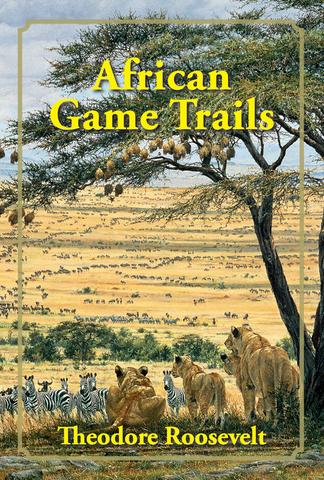
One of the most popular books ever published on African adventure, this reprint of President Theodore Roosevelt’s classic is a big 585 pages with many photos and maps, in addition to drawings by Philip R. Goodwin. Buy Now

